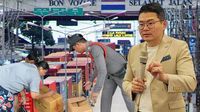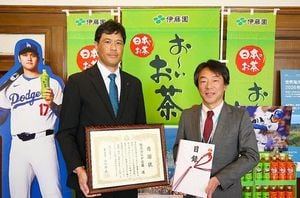Thailand is currently navigating the challenges posed by the "Trump 2.0" era, with economic experts warning that the nation may face significant hurdles in trade and investment. Dr. Supavuth Saicheua, a development policy analyst, highlighted these concerns during the Prachachat Forum on NEXT MOVE Thailand 2025, stating that the policies of U.S. President Donald Trump are creating a wave of uncertainty that could impact Thailand's economy for years to come.
As Thailand grapples with an aging population, the number of residents aged 60 and older is expected to rise from 12.5 million to 20 million over the next 15 years. This demographic shift, coupled with a competitive landscape influenced by global geopolitics, means that Thailand's economic growth could stagnate, making it increasingly difficult to achieve the projected growth rate of 3-5%.
Dr. Phiphat Luengnimitichai, a director at Principal Asset Management, noted that the world is facing four major challenges: globalization, geopolitics, the impact of Trump 2.0, and technological advancements. He emphasized that Thailand must adapt to these changes to remain competitive. The country is still contending with long-standing issues such as low agricultural productivity and a lack of skilled labor, which hinder its economic growth.
Investment in education and technology is crucial for enhancing Thailand's competitiveness in the global market. Dr. Arn Tanningnirat, an executive director at Chulalongkorn University, pointed out that the trade restrictions imposed by the Trump administration on China could lead to an influx of Chinese goods into Southeast Asia, further complicating Thailand's economic landscape.
In a related development, Thailand has been making strides in expanding its economic cooperation with Canada. On March 25, 2025, Dr. Nalinee Taveesin, Thailand's Trade Representative, visited Toronto and Scarborough, Ontario, to meet with executives from leading Canadian companies, including Celestica, Magna International, and TFI Foods. This visit aimed to bolster economic ties and promote trade and investment between Thailand and Canada.
TFI Foods, a major importer of Asian food products in Canada, expressed interest in expanding its production in Thailand. The company currently imports approximately 30 million Canadian dollars worth of goods from Thailand annually, including well-known products such as Ox Head jasmine rice and Thai Gold shrimp, which are produced in Chumphon Province.
Celestica, known for its integrated electronic manufacturing services, has already invested 75 million U.S. dollars in Thailand and plans to invest an additional 100 million U.S. dollars this year, focusing on areas such as artificial intelligence (AI) and data centers. The company views Thailand as a key investment destination in Southeast Asia, with plans to expand its operations further.
Meanwhile, Magna International, a leading automotive parts manufacturer, has established a strong presence in Thailand, operating several plants in the country. The company expressed its commitment to expanding its investment in Thailand, which is crucial for the growth of the electric vehicle (EV) sector.
However, the challenges posed by Chinese investments in Thailand cannot be overlooked. Recent reports indicate that Chinese goods are flooding the Thai market, often at lower prices, which is putting pressure on local businesses. The Thai government is facing increasing complaints from local entrepreneurs who are struggling to compete with the influx of inexpensive Chinese products.
Dr. Sitthipol Wiboonthanakul, a member of the Economic Development Committee, noted that Thailand's trade deficit with China has reached alarming levels, with imports exceeding 2.86 trillion baht and exports at 1.24 trillion baht. This trade imbalance poses a significant threat to Thailand's economic stability.
As the Thai government grapples with these challenges, it is also promoting the use of electric vehicles to stimulate economic growth. The government is offering substantial subsidies for EV purchases, aiming to encourage adoption and reduce reliance on fossil fuels. However, the local automotive parts industry is struggling to keep pace with the demand, as many manufacturers are unable to meet production targets.
The influx of Chinese investments and products is creating a complex landscape for Thai businesses. The government is tasked with balancing the need to attract foreign investment while protecting local industries from being overwhelmed by lower-cost imports. The situation calls for strategic planning to ensure that Thailand can navigate these turbulent waters effectively.
In summary, Thailand is at a crossroads, facing both opportunities and challenges in the wake of global economic shifts. The impact of Trump's policies, coupled with the need to enhance competitiveness and address demographic changes, will shape the future of Thailand's economy. As the country seeks to strengthen its international partnerships, particularly with Canada, it must also find ways to safeguard its local industries and promote sustainable growth.





